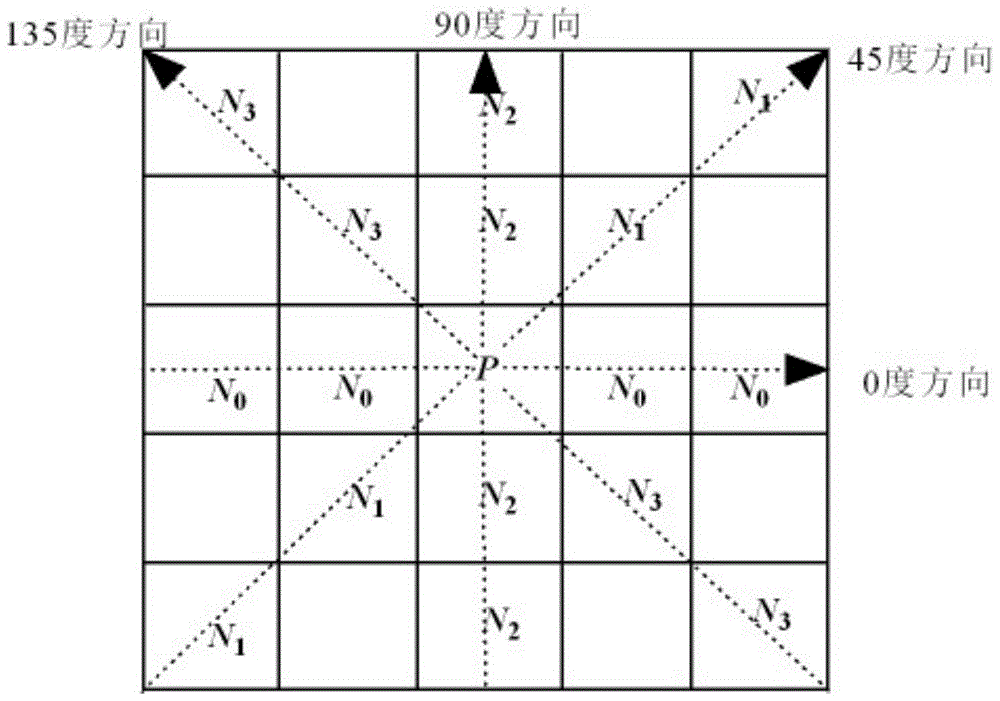Texture Classification Method Based on Fractional Fourier Transform
A fractional Fourier, texture classification technology, applied in instruments, character and pattern recognition, computer parts and other directions, can solve problems such as low time-frequency resolution, inability to achieve correct segmentation, etc., to avoid cross-term problems. Effect
- Summary
- Abstract
- Description
- Claims
- Application Information
AI Technical Summary
Problems solved by technology
Method used
Image
Examples
Embodiment Construction
[0026] The present invention is described in more detail below by way of example:
[0027] Step 1: Obtain an image I, the image I is a grayscale texture image of size N×N, (x, y) is a position coordinate in the texture image, where x=1,2,...,N ;y=1,2,…,N, I(x,y) represents the gray value of the texture image I at (x,y), d=0,1,2,3 respectively represent 0 shown in Figure 1 degree direction, 45 degree direction, 90 degree direction and 135 degree direction, I d (x, y, m) represents the gray value of the m-th neighborhood pixel of the pixel (x, y) in the d direction, where m=1, 2, 3, 4, 5;
[0028] Calculate the one-dimensional discrete FrFT of each pixel of the image in four directions:
[0029] First, for the point (x, y) in the image I, the neighborhood sequence of (x, y) in the directions of 0, 45, 90 and 135 degrees is obtained according to Figure 1. The obtained neighborhood pixel sequence is represented by { I d (x,y,m)|d=0,1,2,3,m=1,2,3,4,5} means;
[0030] Second, pu...
PUM
 Login to View More
Login to View More Abstract
Description
Claims
Application Information
 Login to View More
Login to View More - R&D
- Intellectual Property
- Life Sciences
- Materials
- Tech Scout
- Unparalleled Data Quality
- Higher Quality Content
- 60% Fewer Hallucinations
Browse by: Latest US Patents, China's latest patents, Technical Efficacy Thesaurus, Application Domain, Technology Topic, Popular Technical Reports.
© 2025 PatSnap. All rights reserved.Legal|Privacy policy|Modern Slavery Act Transparency Statement|Sitemap|About US| Contact US: help@patsnap.com



